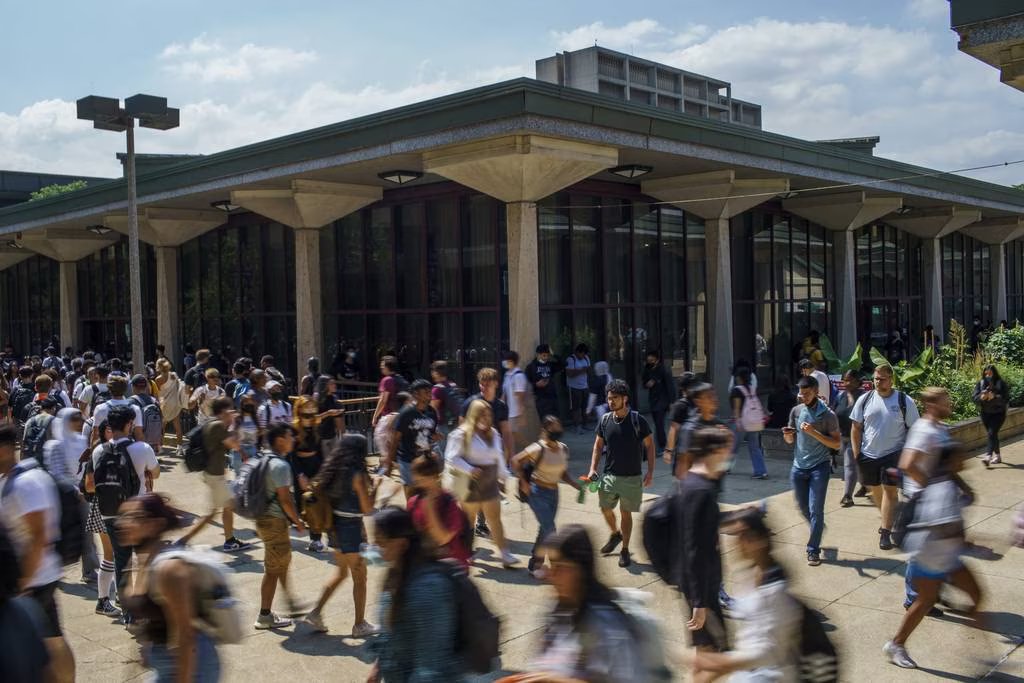States
Legislators Accuse UIC Dentistry Professor Of Employing Racist Imagery And Language

Accuse UIC Dentistry Professor Of Employing Racist Imagery:
Academic racism has been highlighted again with charges of racist statements and unfair treatment of students from the University of Illinois at Chicago (UIC) College of Dentistry. The dispute involves a professor accused of using racist language and images in class.
Racial remarks, queries about a student of color’s “natural hair,” and a stunning picture of a person with a noose and hood are among these alarming charges. These charges have caused uproar and raised issues about academic prejudice, particularly among black students who may be disproportionately impacted.
Lawmakers Demand Accountability
U.S. Representatives Robin Kelly and Danny Davis and State Representative La Shawn Ford have denounced the alleged racism. The legislators wrote to University President Timothy Killeen on November 21 to denounce the racial images and tropes and urge prompt action.
The politicians pledged to fight academic systematic racism in their letter. They want a meeting with university authorities by November 30 to examine these severe claims and the institution’s intentions to fix them.
An Ongoing Battle Against Racism
Racism claims at the UIC College of Dentistry highlight the ongoing fight against racism in academia. According to college students and alums, racist lectures and uneven treatment of students have persisted for years, showing systemic concerns that must be addressed.
One disturbing discovery is a seven-year PowerPoint presentation with a noose. This terrible picture reinforces racial trauma and raises questions about the university’s inaction on such serious claims. The problem deepened as the accused professor’s activities went unpunished.
As university officials investigate the claims, legislators have urged them to explain when they first became aware of the professor’s conduct and what steps were taken.
Calls For Cultural Competency Training
UIC College of Dentistry’s racism claims have generated requests for cultural competence training in academic institutions. Cultural competence training helps teachers and students navigate diverse and inclusive classrooms.
The alleged professor’s use of racial slurs and improper images highlights the absence of culturally relevant training. Such occurrences demonstrate the necessity for educational institutions to engage in cultural sensitivity, knowledge, and respect training.
Cultural competence training helps avoid racism, microaggressions, and discrimination. Educational institutions may combat prejudice and create healthy connections between various groups by educating students and staff about cultural diversity and inclusion.
Impact On Minority Students
The alleged racism at UIC College of Dentistry affects more than just the occurrences and persons involved. It impacts minority kids’ academic and general well-being.
Racism may make learning uncomfortable for Black and minority pupils, causing isolation and prejudice. These events may harm their mental and emotional health, making it hard for them to study and succeed.
These occurrences may also dissuade students from dentistry or further education. A secure and inclusive learning environment ensures that all children, regardless of background, may succeed academically.
Educational institutions may reflect on and improve their procedures by addressing the UIC College of Dentistry racism claims. Creating an inclusive and fair learning environment requires a diverse strategy.
This means conducting a full and honest inquiry into the claims, holding racists accountable, and immediately addressing structural faults in the organization. The curriculum should include cultural competence training to teach instructors and students about diversity and inclusion.
Additionally, institutions must offer explicit mechanisms for reporting racism and prejudice and help impacted persons. Educational institutions may strive toward a future where all students are accepted, valued, and enabled to achieve academic and professional goals by following these actions.
The UIC College of Dentistry claims reminds us that our struggle against racism in education continues. We must guarantee that all pupils may study and flourish in a discrimination-free environment.
Read Also: Examining Systemic Racism’s Impact On Black Students In Chemistry
A Call For Accountability
Racism charges at UIC College of Dentistry have sparked calls for educational responsibility. This debate centers on who is accountable for enabling racist conduct to exist for years.
Racism is often perpetuated by a system, not just one person. Administrative supervision, institutional rules, and the culture that promotes or inhibits discrimination are included. Individuals and organizations must be held responsible for solving racism’s causes.
Although the accused professor is under investigation, the university administration’s participation is also crucial. To prevent racism from being ignored, precise methods for reporting and handling instances and anti-racist policies are essential.
The Role Of Legislation In Combating Racism
Educational institutions need legislation to combat racism. U.S. Representatives Robin Kelly and Danny Davis and State Representative La Shawn Ford have pledged to fight systematic racism in academic environments after the UIC College of Dentistry claims.
These politicians urge prompt action and openness from the university administration in their letter. They want structural reform and accountability. Legislators’ attention to this topic shows how legislation may promote educational equality and justice.
Legislation may establish anti-racist policies, protect students and faculty against racism, and hold colleges responsible for resolving racism. It is effective against educational discrimination.
The Student And Alumni Perspective
Students and alums, mainly Black and minority students, have been deeply affected by UIC College of Dentistry’s racism claims. These people’s experiences and viewpoints illuminate the academic racism fight. Many college graduates have spoken out against racism, stressing that it has continued for years.
Racism’s effects on their education, mental health, and well-being demonstrate the significance of tackling these concerns. Current students have also expressed concerns and experiences, emphasizing the need for quick reform. Stories of college students directly touched by racism remind us of the need to establish inclusive and fair educational settings.
The charges of racism at the UIC College of Dentistry have called for accountability, emphasized the importance of law in preventing racism, and illuminated student and alums experiences. These results highlight the complexity and multidimensional nature of combating racism in schools and the necessity for continual commitment to a more inclusive and equitable learning environment.













You must be logged in to post a comment Login